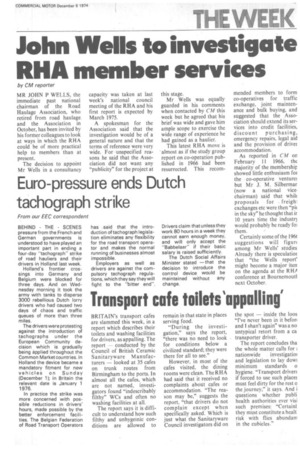Euro-pressure ends Dutch tachograph strike
Page 21

If you've noticed an error in this article please click here to report it so we can fix it.
From our EEC correspondent BEHIND THE SCENES pressure from the French and German governments is understood to have played an important part in ending a four-day "tachograph" strike of road hauliers and their drivers in Holland last week.
Holland's frontier crossings into Germany and Belgium were blocked for three days. And on Wednesday morning it took the army with tanks to disperse 3000 rebellious Dutch lorry drivers who had caused two days of chaos and traffic queues of more than three miles.
The drivers were protesting against the introduction of tachographs under the European Community decision which is gradually being applied throughout the Common Market countries. In Holland the device became a mandatory fitment for new vehicles on Sunday (December 1); in Britain the relevant date is January 1 1976.
In practice the strike was more concerned with possible reductions in drivers' hours, made possible by the better enforcement facilities. The Belgian Federation of Road Transport Operators has -said that the introduction of tachograph legislation eliminates any flexibility for the road transport operator and makes the normal running of businesses almost impossible.
Employers as well as drivers are against the compulsory tachograph regulations, which they say they will fight to the "bitter end". Drivers claim that unless they work 80 hours in a week they cannot earn enough money, and will only accept the "Babbelaar" if their basic salary is raised sufficiently.
The Dutch Social Affairs Minister stated —that the decision to introduce the control device would be maintained without any change.












































































































































